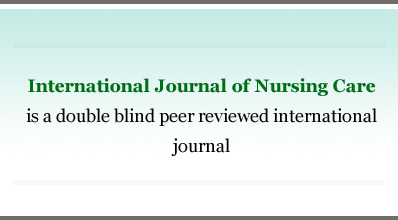Guidelines for article submission
Please note that we follow Uniform Requirements for Manuscripts Submitted to Biomedical Journals International Committee of Medical Journal Editors February 2006.
http://www.icmje.org/2006_urm.pdf
- Title
- Type of the article should be mentioned (orginal/case study/review)
- Names of authors
- Your Affiliation (designations with college address)
- Corresponding author- name, designations, address
- Abstract with key words
- Introduction or back ground
- Material and Methods
- Findings
- Conclusion
- Conflict of interest – see below
- Source of Funding- self or other source
- Ethical clearance – see below
- References in Vancouver style
- Word limit 2500-3000 words, MSWORD Format, single file
- Please quote references in text by superscripting
Conflict-of-Interest Statement
Public trust in the peer review process and the credibility of published articles depend in part on how well conflict of interest is handled during writing, peer review, and editorial decision making. Conflict of interest exists when an author (or the author's institution), reviewer, or editor has financial or personal relationships that inappropriately influence (bias) his or her actions (such relationships are also known as dual commitments, competing interests, or competing loyalties). These relationships vary from those with negligible potential to those with great potential to influence judgment, and not all relationships represent true conflict of interest. The potential for conflict of interest can exist whether or not an individual believes that the relationship affects his or her scientific judgment. Financial relationships (such as employment, consultancies, stock ownership, honoraria, paid expert testimony) are the most easily identifiable conflicts of interest and the most likely to undermine the credibility of the journal, the authors, and of science itself. However, conflicts can occur for other reasons, such as personal relationships, academic competition, and intellectual passion.
International Committee of Medical Journal Editors ("Uniform Requirements for Manuscripts Submitted to Biomedical Journals") -- February 2006
Statement of Informed consent
Patients have a right to privacy that should not be infringed without informed consent. Identifying information, including patients' names, initials, or hospital numbers, should not be published in written descriptions, photographs, and pedigrees unless the information is essential for scientific purposes and the patient (or parent or guardian) gives written informed consent for publication. Informed consent for this purpose requires that a patient who is identifiable be shown the manuscript to be published. Authors should identify Individuals who provide writing assistance and disclose the funding source for this assistance.
Identifying details should be omitted if they are not essential. Complete anonymity is difficult to achieve, however, and informed consent should be obtained if there is any doubt. For example, masking the eye region in photographs of patients is inadequate protection of anonymity. If identifying characteristics are altered to protect anonymity, such as in genetic pedigrees, authors should provide assurance that alterations do not distort scientific meaning and editors should so note.
The requirement for informed consent should be included in the journal's instructions for authors. When informed consent has been obtained it should be indicated in the published article.
Statement of Human and Animal Rights
When reporting experiments on human subjects, authors should indicate whether the procedures followed were in accordance with the ethical standards of the responsible committee on human experimentation (institutional and national) and with the Helsinki Declaration of 1975, as revised in 2000 (5). If doubt exists whether the research was conducted in accordance with the Helsinki Declaration, the authors must explain the rationale for their approach, and demonstrate that the institutional review body explicitly approved the doubtful aspects of the study. When reporting experiments on animals, authors should be asked to indicate whether the institutional and national guide for the care and use of laboratory animals was followed.
International Committee of Medical Journal Editors ("Uniform Requirements for Manuscripts Submitted to Biomedical Journals") -- February 2006
Institute of Medico-Legal Publications
Logix Office Tower, Unit No. 1704, Logix City Centre Mall
Sector- 32, Noida - 201 301 (Uttar Pradesh)
Email: editor.ijonc@gmail.com
Website: www.ijonc.com




